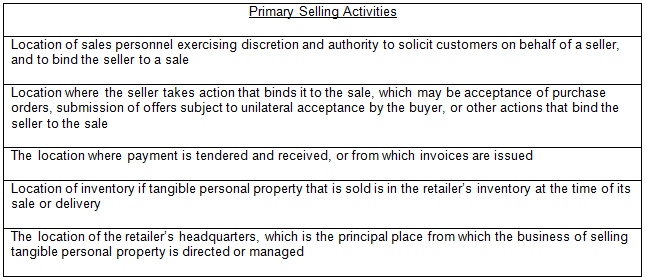The New York State Department of Taxation and Finance has just released a Tax Bulletin addressing how the state’s sales tax applies to sales of computer software and related services. The Tax Bulletin does not broach new ground, but it does offer a formal expression of the Department’s position—previously articulated in advisory opinions—that the provision of remote access to prewritten software is subject to sales tax. However, that position does not comport with New York authorities, including a recent administrative law judge determination that is directly on point.
read more



 Subscribe
Subscribe




